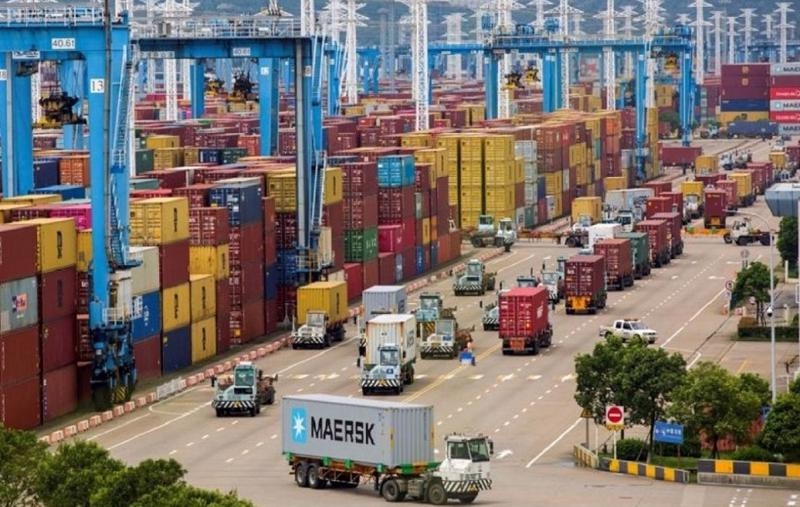According to HSBC, in the first half of 2025 global trade reached a record high, rising by about 300 billion USD, with growth at rare levels. However, this boom does not fully reflect general confidence; it is mainly driven by front‑loading — a rush by companies to import goods ahead of undesirable changes — particularly into the U.S., in order to avoid newly imposed protectionist tariffs.
Runa Baksi, HSBC’s Director for Southeast Asia in Global Trade Solutions, notes that while trade into the U.S. has surged, other corridors such as Asia–Europe have remained nearly unchanged. This indicates that U.S. protectionist policy is not only strongly shaping the reshaping of global trade, but is also a source of systemic instability.
ASEAN is facing a dual challenge. After the U.S. imposed reciprocal tariffs starting April 2, many delegations, including ASEAN, rushed to negotiate in Washington. To date, major ASEAN economies have accepted a tariff framework of 19–20%, with varying levels of concession.
“In the near future, uniform tariff environments across ASEAN will create a level playing field, help maintain competitive advantages for countries like Vietnam, Thailand, the Philippines and Malaysia, while reinforcing investor confidence. Yet tariffs remain an unresolved issue as bilateral negotiations continue,” said Baksi.
According to her, U.S. trade protectionism poses a dual challenge for ASEAN: it causes short‑term turmoil, but at the same time drives the momentum for long‑term reorientation.
In the short term, the region will struggle to find an alternative to the U.S. market, leading to trade volatility and spikes in growth that are unsustainable. To overcome this, ASEAN needs to remain resilient and adaptable.
In the long term, the need for trade diversification becomes ever more pressing. Beyond the U.S., ASEAN is accelerating relationships with China, Japan, Korea and emerging markets in the Middle East, Latin America, India, while leveraging frameworks such as RCEP, CPTPP and intra‑bloc trade to enhance stability and reduce dependency on a single market.
At Vietnam, HSBC experts say businesses are facing a complex set of challenges, starting with the U.S. tariff instability. The shift from a projected 46% tariff to a final rate around 20% has led to very large volatility, especially for producers in textiles, electronics and footwear.
Some manufacturers like Samsung and Pegatron initially ramped up output to beat the tariff schedule, while others like LG temporarily halted production due to delayed orders. “This forces companies to reconsider their market presence as well as seek new opportunities in regions like Europe and Japan,” said Surajit Rakshit, HSBC Vietnam’s Country Head of Global Trade Solutions.
Additionally, Rakshit notes the recent reduction of subsidies for renewable energy across 173 wind and solar projects has raised concerns about investor confidence, as it could affect reliable power supply — a key factor for manufacturing growth in Vietnam.
While FDI is increasing strongly, the domestic supply chain remains weak. Among Samsung’s 103 global core suppliers, only 27 are based in Vietnam, mostly foreign‑owned, pointing to major dependency and limited value addition. Moreover, a complex legal environment, from licensing to tax administration, continues to be a barrier for both foreign investors, domestic enterprises, and large conglomerates.
To respond to this new and volatile environment, HSBC’s experts recommend proactive steps by businesses and Vietnamese policymakers. Diversifying markets is critical to reducing dependence on the highly volatile U.S. market. Companies should proactively explore and build demand in Europe, Japan and other regional economies.
“Given the risks around energy policy, plans for risk governance and contracts should be strengthened to reduce the impact of power supply uncertainty. At the same time, compliance procedures should be streamlined, approvals simplified, and internal governance improved to adapt to Vietnam’s specific legal environment,” advises Rakshit.
Source: vneconomy.vn





